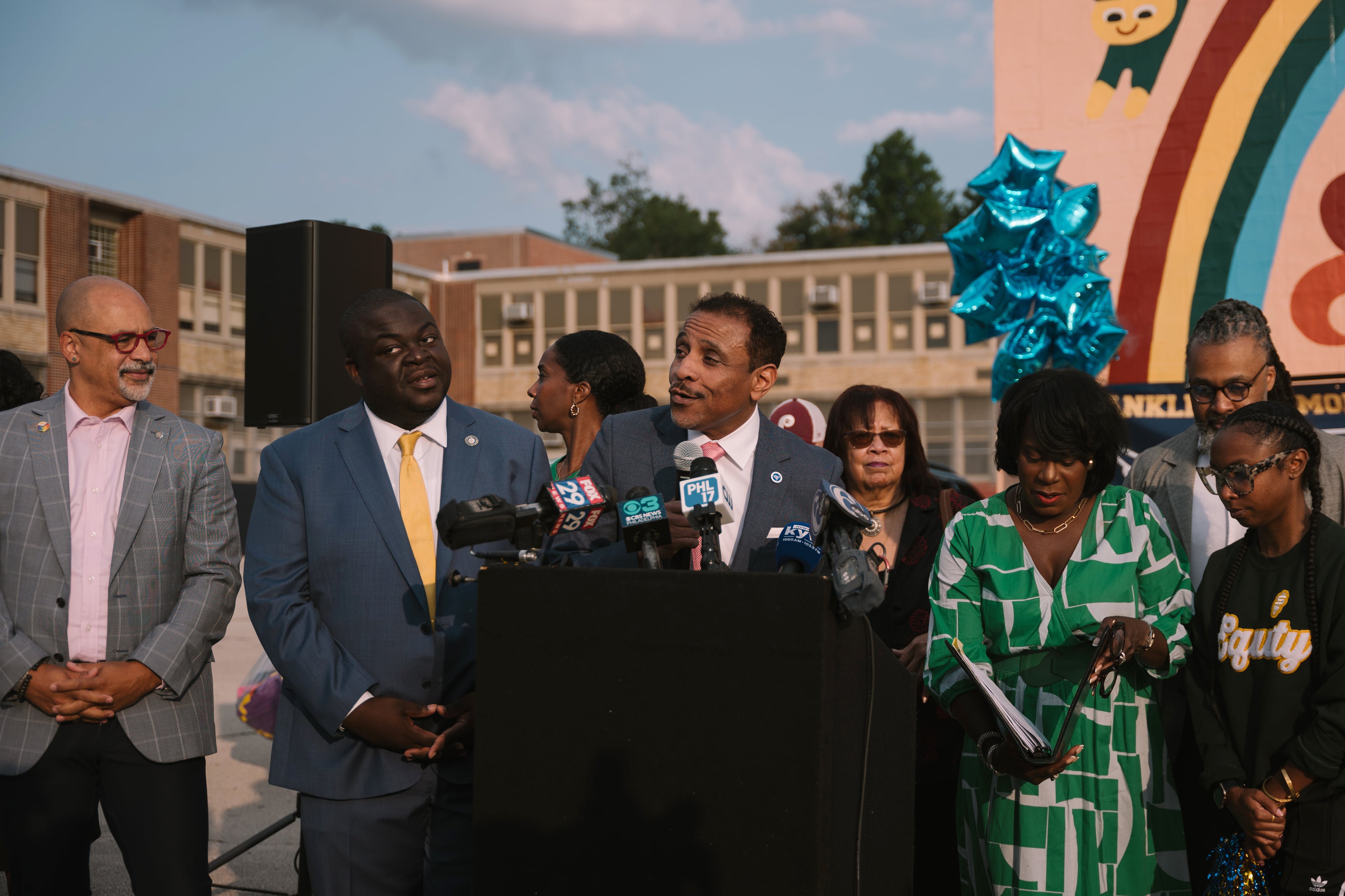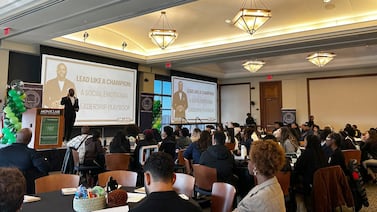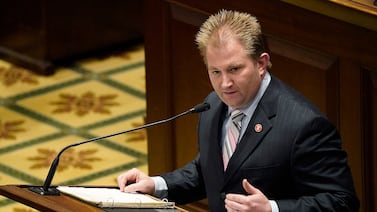Sign up for Chalkbeat Philadelphia’s free newsletter to keep up with the city’s public school system.
Philadelphia Superintendent Tony Watlington’s ambitious new curriculum overhaul could turn out to be one of his most lasting impacts on the district.
With the school board’s approval of an additional $25 million for math manipulative tools this week, what started as a $70 million initiative to standardize and improve Philly schools’ teaching resources has now grown to over $100 million — mostly paid through federal COVID relief.
According to district data, the money is being split between some six vendors and will cover resources for teachers and students through the 2027-28 school year.
Watlington has said giving students a “state-of-the-art, best-in-class” curriculum that’s consistent across city schools is a crucial and urgent part of his five-year strategic plan to improve students’ learning conditions.
Alongside the curriculum remodel, the school district is also forging ahead with a facilities planning process to “rightsize” the district’s school building stock, reconfigure schools that are overenrolled and underenrolled, and potentially close some buildings in the coming years.
“We’re taking the time to do this thoughtfully, in a way that we support all of our communities, and in a way that we can be proud of,” Watlington said in an interview with Chalkbeat this week about the facilities process. “When you have a school of a certain size, you can take existing resources” and stretch them to reach more students, Watlington said.
The most recent state test score results show student achievement has been improving incrementally. However, the district reported to the school board this week “as that was just year 1 of implementation [of the new math curriculum materials], we expect greater gains in the coming years.”
Some teachers have also expressed frustration with the curriculum rollout, telling Chalkbeat they didn’t feel they received adequate training and that the strict requirements can leave little room for personalization.
According to the district, other teachers in focus groups it has hosted have responded positively to the new math curriculum in particular, saying it increased “student engagement, confidence, and collaboration.”
The $25 million in new money approved by the board Thursday is the first to come from district operating aid rather than the COVID relief spending — the majority of which expired last September.
Here’s a breakdown of how the new curriculum spending is being distributed:
Math Core Instructional Materials for school years 2023-24 to 2027-28
- Vendor: Imagine Learning - Illustrative Math, $45 million
English Language Arts Core Instructional Materials for school years 2024-25 to 2025-26
- Vendor: Expeditionary Learning/Imagine Learning, $20 million
- Vendor: McGraw-Hill StudySync, $4.2 million
Science Core Instructional Materials for school years 2025-26 to 2027-28
- Vendor: Amplify Education, $20 million
- Vendor: Kendall Hunt, $3.7 million
- Vendor: SAVVAS, $7.9 million
Carly Sitrin is the bureau chief for Chalkbeat Philadelphia. Contact Carly at csitrin@chalkbeat.org.







